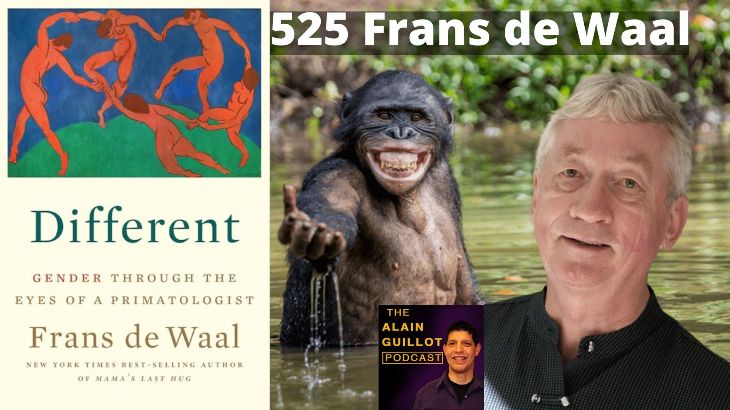About Frans de Waal

Dr. Frans B. M. de Waal is a Dutch/American biologist and primatologist known for his work on the behavior and social intelligence of primates. His first book, Chimpanzee Politics (1982) compared the schmoozing and scheming of chimpanzees involved in power struggles with that of human politicians.
Ever since, Frans de Waal has drawn parallels between primate and human behavior, from peacemaking and morality to culture. His scientific work has been published in hundreds of technical articles in journals such as Science, Nature, Scientific American, and outlets specialized in animal behavior. His popular books — translated into twenty languages — have made him one of the world’s most visible primatologists. His latest books are The Age of Empathy (2009), and The Bonobo and the Atheist (2013). Two recent edited volumes are The Primate Mind (2012) and Evolved Morality (2014).
Frans de Waal is C. H. Candler Professor in the Psychology Department of Emory University and Director of the Living Links Center at the Yerkes National Primate Research Center, in Atlanta, Georgia. Since 2013, he is a Distinguished Professor (Universiteitshoogleraar) at Utrecht University. He has been elected to the (US) National Academy of Sciences, the American Academy of Arts and Sciences, and the Royal Dutch Academy of Sciences. In 2007, he was selected by Time as one of The Worlds’ 100 Most Influential People Today, and in 2011 by Discover as among 47 (all time) Great Minds of Science. Being editor-in-chief of the journal Behaviour, de Frans de Waal has stepped in the footsteps of Niko Tinbergen, one of the founders of ethology.
His latest research concerns empathy and cooperation, inequity aversion and social cognition in chimpanzees, bonobos, and other species. He and his students have pioneered studies on how behavior is culturally transmitted in the primates, whether elephants recognize themselves in mirrors, how primates react to unequal reward divisions, how well primates spontaneously cooperate, and whether bonobo orphans are as emotionally affected by their trauma as human orphans.
Where to find Frans de Waal
Different: Gender Through the Eyes of a Primatologist

In Different, world-renowned primatologist Frans de Waal draws on decades of observation and studies of both human and animal behavior to argue that despite the linkage between gender and biological sex, biology does not automatically support the traditional gender roles in human societies.
While humans and other primates do share some behavioral differences, biology offers no justification for existing gender inequalities.
Using chimpanzees and bonobos to illustrate this point―two ape relatives that are genetically equally close to humans―Frans de Waal challenges widely held beliefs about masculinity and femininity, and common assumptions about authority, leadership, cooperation, competition, filial bonds, and sexual behavior. Chimpanzees are male-dominated and violent, while bonobos are female-dominated and peaceful. In both species, political power needs to be distinguished from physical dominance. Power is not limited to the males, and both sexes show true leadership capacities.
Different is a fresh and thought-provoking approach to the long-running debate about the balance between nature and nurture, and where sex and gender roles fit in. Frans de Waal peppers his discussion with details from his own life―a Dutch childhood in a family of six boys, his marriage to a French woman with a different orientation toward gender, and decades of academic turf wars over outdated scientific theories that have proven hard to dislodge from public discourse. He discusses sexual orientation, gender identity, and the limitations of the gender binary, exceptions to which are also found in other primates.
With humor, clarity, and compassion, Different seeks to broaden the conversation about human gender dynamics by promoting an inclusive model that embraces differences, rather than negating them.
